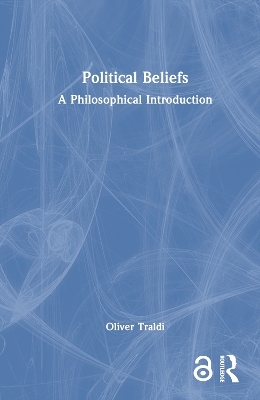
Political Beliefs
Routledge (Verlag)
978-1-032-40912-2 (ISBN)
The book’s twenty-four chapters are divided into four larger parts, which cover the following: (1) the differences between political and other types of beliefs, (2) theories of political belief formation, (3) sources of our political beliefs and how we might evaluate them, and (4) contemporary phenomena – like polarization, fake news, and conspiracy theories – related to political beliefs.
Along the way, the book addresses questions that will arise naturally for many readers, like:
Does the news you choose to watch and your own social media leave you stuck in an “information bubble”?
Are you committed to a certain ideology because of the history of your society?
Are people who believe “fake news“ always acting irrationally?
Does democracy do a good job of figuring out what’s true?
Are some political beliefs good and some evil?
As the book investigates these and other questions, it delves into technical, philosophical topics like epistemic normativity, the connection between belief and action, pragmatic encroachment, debunking arguments, and ideology critique. Chapter summaries and discussion questions will help students and all interested readers better grasp this new, important area on the border of politics and philosophy.
Key Features
Systematically covers the political turn in contemporary epistemology and integrates it with important work in other fields (like psychology and political science)
In addition to deep coverage of the nature of political belief, includes material on the ethics of political belief and how we ought to form our beliefs
Approaches topics that naturally interest students like political disagreement, fake news, conspiracy theories, and the morality of belief
Provides a Conclusion and Discussion Questions at the end of each chapter, prompting student readers to think more clearly and deeply about the material they’ve read
The Open Access version of this book, available at www.taylorfrancis.com, has been made available under a Creative Commons Attribution (CC-BY) 4.0 International license.
Oliver Traldi is a John and Daria Barry Postdoctoral Research Fellow at the James Madison Program at Princeton University. He received a PhD in philosophy from the University of Notre Dame.
Part I: Preliminaries; 1. What is political?; 2. What are beliefs?; 3. What are political beliefs? What is politicization?; 4. Political conflict and interpreting political disagreement; 5. The politics of verbal disputes; Part II: Theories; 6. Theories of type and personality; 7. Theories of inertia and ideology; 8. Theories of identity, signaling, and partisanship; 9. Theories of positionality, standpoint, and experience; 10. Theories of tunneling and ideational determinism; 11. Minimalist and eliminativist theories; Part III: Sources; 12. Debunking and rationalizing political epistemology; 13. Skepticism from widespread disagreement; 14. Democracy; 15. Decentralization; 16. Expertise; 17. The ethics of belief; 18. The epistemology of liberalism; Part IV: Dynamics; 19. Polarization as sorting; 20. Polarization as extremism; 21. Conspiracy theories; 22. Propaganda, dehumanization, and gullibility; 23. News, narratives, and rumors; 24. Political epistemology and the philosophy of history; Conclusion.
| Erscheinungsdatum | 16.05.2024 |
|---|---|
| Zusatzinfo | 2 Halftones, black and white; 2 Illustrations, black and white |
| Verlagsort | London |
| Sprache | englisch |
| Maße | 152 x 229 mm |
| Gewicht | 684 g |
| Themenwelt | Geisteswissenschaften ► Philosophie |
| Geisteswissenschaften ► Psychologie ► Allgemeine Psychologie | |
| Sozialwissenschaften ► Kommunikation / Medien ► Kommunikationswissenschaft | |
| Sozialwissenschaften ► Politik / Verwaltung ► Politische Theorie | |
| ISBN-10 | 1-032-40912-6 / 1032409126 |
| ISBN-13 | 978-1-032-40912-2 / 9781032409122 |
| Zustand | Neuware |
| Informationen gemäß Produktsicherheitsverordnung (GPSR) | |
| Haben Sie eine Frage zum Produkt? |
aus dem Bereich


